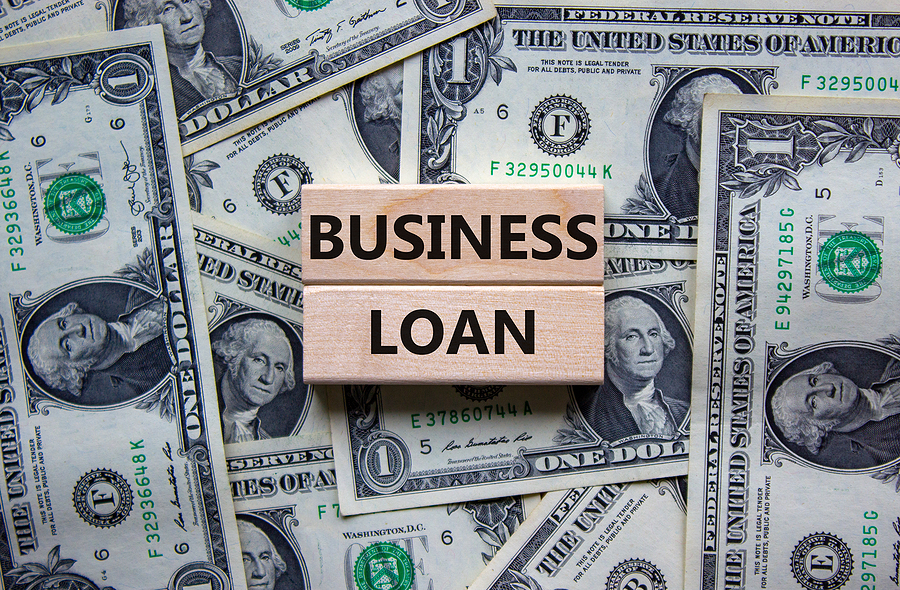The COVID pandemic has wreaked havoc on the small business community. Unfortunately, the Payroll Protection Program (PPP) and other federally-funded programs fell short for many small business owners. According to a May 2020 article in the Washington Post, more than 100,000 small businesses have closed due to the economic downturn that resulted from the pandemic and that number continues to increase. However, some small businesses are exploring alternative funding options to try and overcome this crisis. For many, a merchant cash advance could be the lifesaver they’re looking for.
It isn’t a matter of choosing one over the other. By all means, as a small business owner, if you qualify for a PPP loan, you should take advantage of it. As long as you follow the restrictions that accompany this type of funding, the loan is forgiven. This is where a cash flow gap occurs for some small business owners. The PPP requires that 60% of the funding be spent on payroll in order for the loan to be forgiven. For businesses that only have a few, that may not be possible. Even if it is, the remaining 40% may not be enough to cover other overhead expenses – never mind financing what you need for a successful recovery.
Obtaining a traditional business loan from your bank became difficult after the financial crisis of 2008. Although approval rates were beginning to improve, the COVID pandemic brought that to a screeching halt. Even if your chances of getting a traditional loan are better than most, receiving that funding can take a long time and involve a lot of paperwork. If it’s time to sink or swim for your small business, do you really have time to wait? Merchant cash advance funding can have you approved in hours and funded in days.

In addition to getting the funding your small business needs to work toward recovery quickly, there are a few other benefits of merchant cash advance financing.
The last thing a small business owner wants to do in the current economic climate is to add long-term debt to their balance sheet. A merchant cash advance is not a loan. It is an advance on your future debit and credit card sales. Repayment is automatically deducted from those sales at an agreed-upon percentage. This means your payments will increase or decrease in proportion to your sales. With the money to finance any operational adjustments your business needs to succeed in the new normal, your sales will rise and your merchant cash advance will be paid off in no time.
That’s not a problem. Merchant cash advance approval is based on more than just your credit score. Their approval rate is generally higher than that of traditional financing. Your credit rating can impact the amount of your cash advance, however, it isn’t the primary factor in granting an approval. The revenue generated by credit and debit card sales is instrumental in receiving approval as well as the average daily balance of your checking account, any overdraft fees, and negative balances.
Unlike the PPP loans, you can use merchant cash advance funding to cover any business expenses necessary. Whether you need to purchase new equipment, develop new operating procedures, or hire an agency to help you compete in the online marketplace, a merchant cash advance can make that happen and have your small business on the road to recovery in no time.

If your business needs an immediate influx of capital to keep your business moving forward, a merchant cash advance can be a great solution. At CapFlow Funding Group, our team of professionals will evaluate your business’s unique situation and help you determine which funding option would best suit the company’s needs. We service many different industries with a variety of different funding needs. In addition to merchant cash advances and invoice factoring, we work with trusted partners to provide additional merchant funding options. Contact us today!
The COVID pandemic has impacted just about every aspect of our personal and professional lives. Federal taxes are no exception. According to the United States Treasury, the deadline for individual taxpayers, sole proprietors, and single-owner LLCs filing tax returns will be automatically extended from April 15, 2021, to May 17, 2021. This provision is part of the American Rescue Plan, signed into law on March 11, 2021, which impacts 2020 tax returns. While that gives business owners a little extra time to prepare their taxes, determining what can be deducted may be a bit more confusing this year. We’ve put together some information and small business tax tips to make the process a little easier.
That is the big question. There has been much confusion about whether or not the funding provided by the Payroll Protection Program (PPP), Economic Injury Disaster Loans (EIDL), and the recently approved Shuttered Venue Grants (SVG) is taxable. It’s a fair question. Technically, all income, despite the source, is taxable income unless there is a tax law that provides an exception, such as the General Welfare exclusion.
This exclusion states that payments by governmental units under legislatively provided social programs that promote the general welfare are exempt from the recipients’ taxable income. To qualify, the payments must be made from a government fund for the promotion of general welfare and not represent compensation for services rendered. Although it sounds like all the government grants we’ve mentioned would fall into this category, initially, that wasn’t the case.
Originally, the IRS ruled that small business grants didn’t qualify for the General Welfare exclusion and that any normally deductible business expenses paid for with funds from these forgivable loans and grants would not be able to be deducted. However, with the reopening of PPP loans, new information was released stating that PPP loans that were or would be forgiven were not taxable. The same is true of EIDL and SVG funding. Also, normally deductible expenses paid with this type of funding would still be allowed to be deducted.

This may have some small business owners breathing a sigh of relief. However, one of the best small business tips is to work with your tax professional to make sure everything is done correctly. It is also a good idea to be well-prepared when meeting with them.
This checklist can help you make sure you have everything you need for tax season.
Knowing which forms are necessary for your business is the perfect place to start. For a sole proprietorship, you will need a Schedule C Form attached to your personal income tax return, or use a 1099-MISC. Corporations will use Form 1120, however, if you have an S-corporation status you will use Form 1120S. Partnerships will use Form 1065 as an informational return and submit your share of the business’s expenses, income, and losses on Schedule K-1.
This should include any expenses you paid for out of pocket, any personal expense paid out of your business account, and if you travel for business, your mileage log. It is always recommended to keep your personal and business expenses separate. Even the most conscientious business owners can slip up.
Maybe you bought some software for your business online and used your personal PayPal account instead of your business credit card. It’s important to review your personal and business expenditures and identify and crossover expenses. For keeping your mileage log up-to-date, ditch the paper and pencil if you haven’t already and try one of the many mileage tracking apps available. Also, don’t forget to include meals purchased while traveling or meeting with customers.
Make sure to include any 1099 forms you’ve received or any you have issued any necessary to the non-corporate service providers as appropriate. If you pay for these service providers with a credit, debit card, or through a payment service such as Paypal, do not include these in your 1099 reporting. The payment processor is responsible for reporting those payments on Form 1099-K. If yours is a service-based business and you provided any work for a company or individual as a non-employee, you’ll receive a 1099-MISC form.
You’ll want to be as prepared as possible when you meet with your tax professional. Make sure you have all of your financial records. These may include but are not limited to the following:

One of the most beneficial small business tax tips is to estimate your taxes and plan for them financially. However, tax season can be full of surprises. If meeting your tax obligations has left your business strapped for cash and you need some short-term funding, CapFlow Funding Group may be able to help. We are dedicated to providing the business cash flow you need to survive tax season and will work with you to find the best funding solution for your business.
While CapFlow Funding Group specializes in factoring and merchant cash advances, we can also connect our clients with other alternative financing options that may be better suited to their business needs. We service many different industries with a variety of funding needs. Contact us today and find out how invoice factoring can help grow your small business.